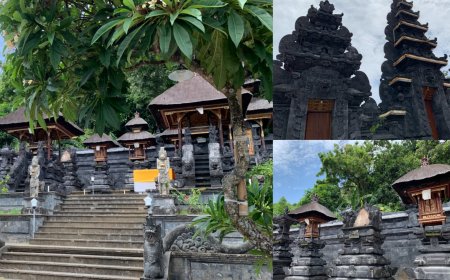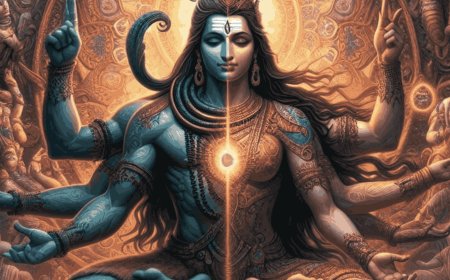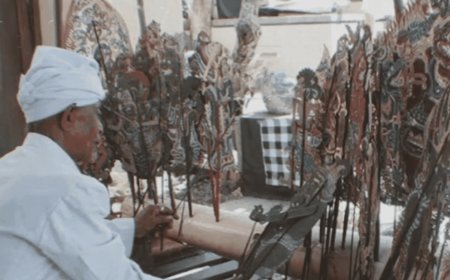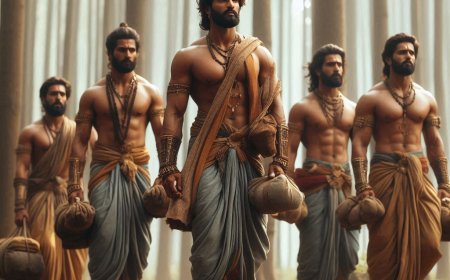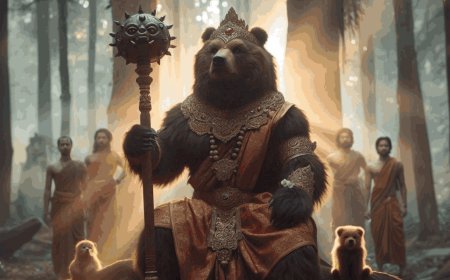Khrisna Avatar: Baratayuda and Baghavad Gita
When the Baratayuda war took place, the fate of the entire kingdom's nation would be determined. Whether the Pandavas or Kuravas would emerge victorious was uncertain. Then there's Khrisna, the incarnation of the god Wishnu, became a crucial figure in the war. What role did Khrisna play and what did he do?
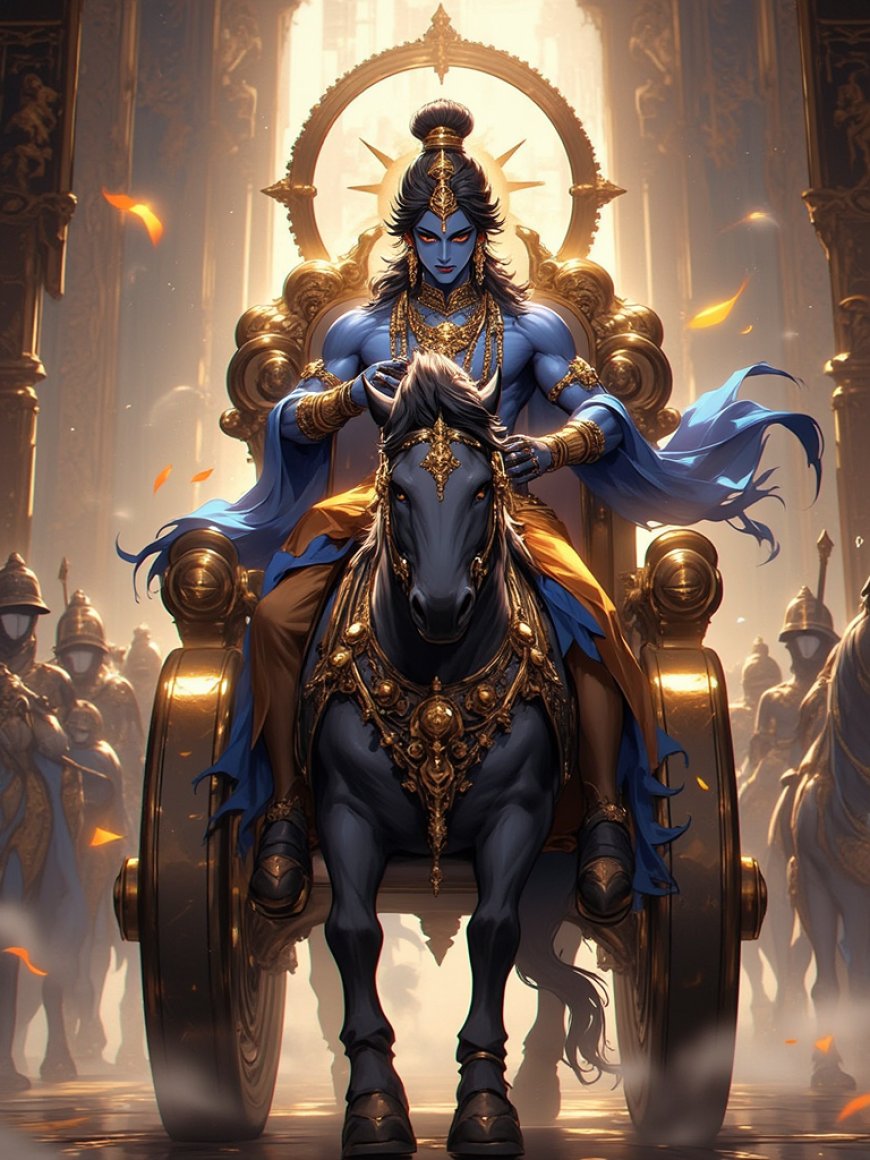
In a time long ago, during the Dwapara Yuga, a very special baby was born. This baby was Krishna, an incarnation of the God Vishnu, who came to the world to fight evil and bring justice. He was born in a royal prison in Mathura, under the protection of his father, King Vasudeva, and his mother, Queen Devaki. Krishna's birth occurred on a night filled with miracles, accompanied by many wonders.
When Krishna was born, the sky was filled with sparkling light and the sounds of heavenly music. The gods rejoiced, celebrating His arrival in the world. However, on the other side, his wicked uncle, Kamsa, heard this news and was determined to kill the baby. In the darkness of the prison, King Vasudeva and Queen Devaki prayed earnestly for their child's safety. With cunning and divine assistance, baby Krishna was smuggled to the village of Vrindavan by his father. There, he was raised by his foster parents, Nanda and Yasoda. From a young age, Krishna displayed extraordinary signs, he could perform miracles that left everyone in awe.
Illustration of Young Khrisna (Source: Personal Collection)
As Krishna grew older, he became an exceptional young man. In Vrindavan, he was known for his skills in tending to cows and for his charming personality. Every day, he spent time with his fellow cowherds, playing the flute and dancing with the gopis. The sound of his flute could enchant anyone who heard it.
Krishna was also known for his cheerful and loving nature. He often helped the villagers in various ways. One time, when the village faced severe drought, Krishna called upon all rivers and water sources to flow back into the village. With a touch of his hand, water flowed abundantly and saved the village from starvation.
His love story with Radha became legendary among the gopis. They shared beautiful moments in the forests of Vrindavan, dancing and singing joyfully together. However, behind all this happiness lay an awareness that a greater mission awaited him in the future.
As Krishna reached adulthood, news of His existence reached Kamsa's ears. Feeling threatened by Krishna's extraordinary powers, Kamsa sent various demons to kill Him. Yet every attempt to harm Krishna always failed. With cleverness and bravery, Krishna defeated each demon sent by his uncle. Finally, after many battles against these demons, Krishna decided it was time to confront Kamsa directly. With unwavering determination and support from friends and villagers of Vrindavan, He returned to Mathura to challenge his uncle.
Illustration of Khrisna Gathering his Power (Source: Personal Collection)
In Mathura, a tense atmosphere enveloped Kamsa's palace. When Krishna arrived with divine courage and strength, the people cheered joyfully at seeing their hero return. In an epic battle between Krishna and Kamsa that raged fiercely in the palace arena, many witnessed how evil could ultimately be vanquished by good.
With one final powerful strike filled with divine energy, Krishna defeated Kamsa. The people of Mathura rejoiced at this victory, they celebrated their freedom from their wicked uncle's tyranny. However, shortly after this victory, a great conflict threatened the peace they had just found.
Not long after this victory, a great conflict arose. Krishna became a central figure in the Baratayuda—the epic war that would determine the fate of kingdoms and the future of an entire nation. On the battlefield of Kurukshetra, two groups of brothers—Pandavas and Kauravas—prepared for war. The Pandavas consisted of five brothers—Yudhishthira, Bhima, Arjuna, Nakula, and Sahadeva—who had rightful claim to the kingdom taken by Kauravas.
The day arrived, Kurukshetra became a witness to the final preparations before this great battle began. Arjuna stood in his chariot driven by Krishna. Seeing enemies before him—his own family—Arjuna experienced profound inner turmoil.
Arjuna felt pressured and doubtful. He was torn between his duty as a warrior and his love for those he had to fight against. In this moment of anxiety, Arjuna turned to Krishna and expressed all his doubts. Patiently and wisely, Krishna began to speak to Arjuna about life and spirituality. He explained that life is about performing our dharma wholeheartedly without attachment to the outcomes of our actions.
Krishna taught him Karma Yoga—the path of action without attachment to results. Bhakti Yoga—the path of devotion to God. As well as Jnana Yoga—the path of knowledge and wisdom. He emphasized understanding one's true self to achieve spiritual enlightenment.
With these teachings, Krishna helped Arjuna overcome his doubts and regain confidence. Arjuna found courage again. He was ready to fight knowing that this battle was part of his dharma as a warrior.
Illustration of Baratayudha War (Source: Personal Collection)
The Baratayuda battle raged fiercely. Clever strategies and heroism filled the battlefield with sounds of clashing weapons. The Pandavas fought valiantly with Krishna as their charioteer.
After enduring various dramatic moments—losing close friends and facing heavy challenges—the Pandavas ultimately triumphed after a long exhausting struggle.
After this monumental mission was completed, Krishna continued His life spreading His teachings widely among people. The Bhagavad Gita—the profound teachings given to Arjuna on the battlefield—remains a spiritual guide for many even today.
The summary and the moral of this story is that when facing life's challenges, we must hold onto our dharma while remaining unattached to the outcomes of our actions. Like Arjuna, we are taught to live life with courage, love, and devotion to God in order to achieve noble goals in our lives. Thus, Krishna remains a source of inspiration for many people to this day.




